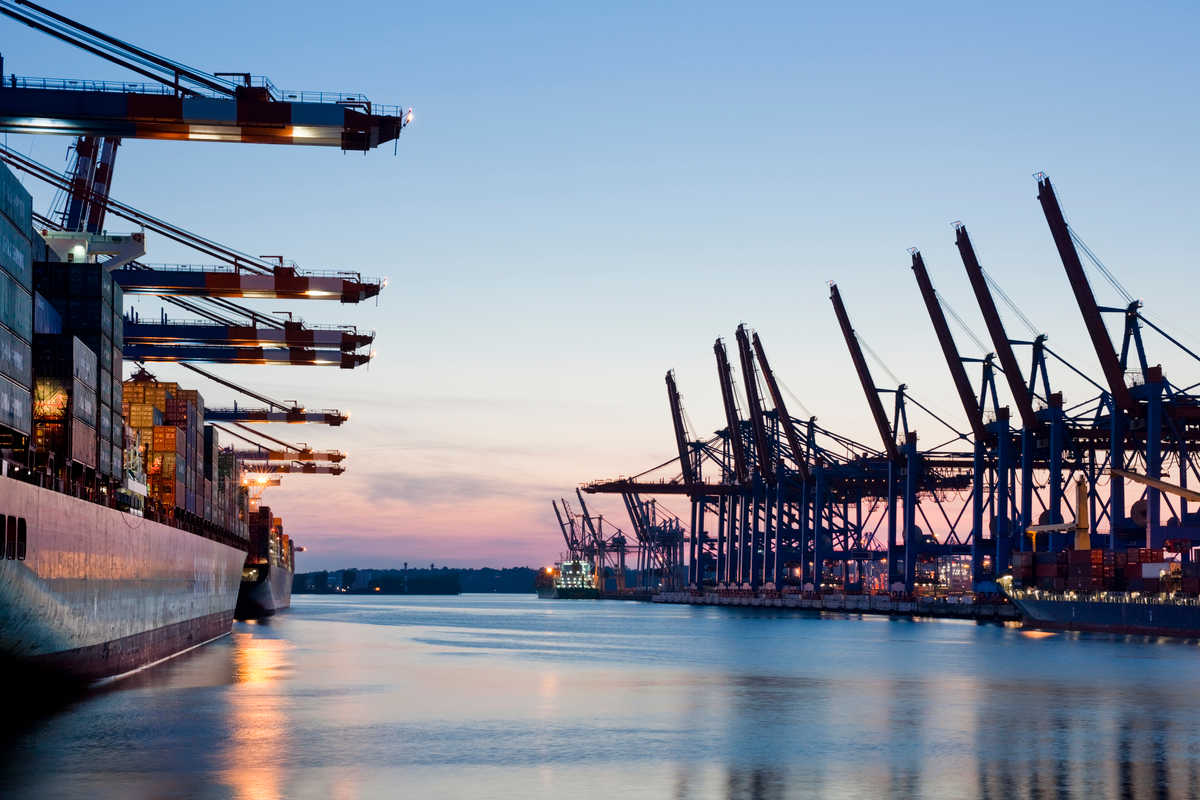
November 2, 2021
State of Trade: Dealing with Brexit and Trucking Challenges
State of Trade: Dealing with Brexit and Trucking Challenges
Europe’s international trade activity has recovered to pre-pandemic levels but EU-U.K. trade remains depressed. A recent Flexport State of Trade webinar considered the causes, outlook and strategies for supply chain operators looking to negotiate current challenges.
Trucking Industry Challenges
A shortage of truck drivers is causing ongoing peak-season disruptions, particularly in the U.K., and is unlikely to be fixed in the short term.
Trucking has become an unattractive profession with an ageing population of drivers combined with the inherently antisocial hours and challenging working conditions, as well as recent tax changes that have cut driver incomes. COVID-19 has caused a backlog of driver testing and Brexit has led to EU drivers leaving the U.K. disrupting prior international trucking practices.
Government policy actions to reduce labor barriers—for example through additional visa grants—as well as improved infrastructure investment, can help. Look for technological solutions such as improved end-to-end bookings as well as flexibility in logistics options.
Autonomous vehicles, while an intriguing concept, are unlikely to make a significant impact in the next 10 years.
Brexit Uncertainty is Here to Stay
There are three main Brexit-related challenges that will likely persist in 2022, though there are strategies that can be deployed to mitigate them.
Labor mobility will remain a recurring challenge, restricting the availability of critical staff in multiple industries ranging from trucking to food processing. The British government’s visa program is only a limited fix. Firms should utilize partners, particularly in logistics, that have clearly-articulated strategies for hiring and retaining sufficient staff.
The Northern Ireland Protocol remains in flux, adding uncertainty to intra-U.K. supply chains. Negotiations between the EU and U.K. will continue through much of the rest of 2021. It is prudent to assume that the strictest form of customs rules will be put in place.
The wider Trade & Cooperation Agreement includes provisions for retaliatory tariff actions should one side be unhappy with trade-related policies implemented by the other. EU plans to incentivize semiconductor investments could be a flash-point. Consider opportunities for alternative sourcing if such disputes emerge.
In conclusion, the continued uncertainties from the implementation of Brexit and ongoing challenges in trucking require planning and operational flexibility from supply chain decision makers.
For more, watch The State of Trade: The Trouble with Trucking and Brexit and read the transcript below.
Disclaimer: The contents of this report are made available for informational purposes only and should not be relied upon for any legal, business, or financial decisions. Flexport does not guarantee, represent, or warrant any of the contents of this report because they are based on our current beliefs, expectations, and assumptions, about which there can be no assurance due to various anticipated and unanticipated events that may occur. This report has been prepared to the best of our knowledge and research; however, the information presented herein may not reflect the most current regulatory or industry developments. Neither Flexport nor its advisors or affiliates shall be liable for any losses that arise in any way due to the reliance on the contents contained in this report.





